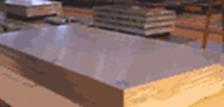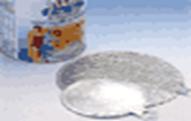C.S. Aluminum Products
Business Contacts:Jack Cheng/Extension:33163/Email:csac@csgt.com.tw
Aluminum Plates
After being thoroughly processed through scalping, re-heating, hot rolling, stretch leveling, and sawing, aluminum slabs are transformed into aluminum plates. Heat treated plates are also treated with a solid solution process after hot rolling. CSAC’s high strength alloy plates are widely recognized for their homogenous chemical composition, good mechanical properties, and exact sizes and dimensions, making them a popular choice in manufacturing precision molds and in industries that use machinery.
Aluminum plates are gaining more applications in the field of transportation as a substitute material to reduce weight, conserving valuable energy as a result. Aluminum plates have traditionally been used in aviation and building ships, but have also been used in the automobile and motorcycle industries.
CSAC has been awarded with a DNV,LR,CR,BV,ABS certificate for its aluminum plates used in building ships.


Aluminum Sheets and Coils
CSAC manufactures aluminum sheets and coils with advanced rolling, coating, and finishing technologies, making it the best supplier for high quality aluminum materials. We are confident to meet precise customer specifications and requirements.


Aluminum Foil
After it is laminated with plastic or paper, aluminum foil can also be used to packaging protection from sunlight, and preservation of the freshness in a large range of consumer items (tetra-pack containers, food packaging, cigarette packaging, can-seals, etc.)


Date | Certification |
November 1996 | Manufacturer Certificate from Det Norske Veritas of Norway for aluminum alloy plates for marine applications |
August 1997 | Certification by SGS Yarsley International Certificate Services, Ltd. For meeting ISO 9002 requirements |
April 1998 | Certification from Aerospace Industry Development Corporation of Taichung, Taiwan for having met the requirements of its Quality System Level AIDC S-200 |
December 1998 | Received certificate for qualification as a defense industry domestic manufacturer. |
October 1999 | Completed registration with the London Metal Exchange for the company's aluminum alloy trademark "CAC" |
February 2001 | ISO 14001 certification from Bureau Veritas Quality International |
October 2002 | Approval from TÜV, based on PED/ADW standards, for pressure vessel applications the European Union |
December 2002 | Certification by SGS Yarsley International Certificate Services, Ltd. For meeting ISO 9001 requirements |
May 2005 | ISO 17025 certification from Taiwan Accreditation Foundation Testing Field Laboratory |
February 2006 | Completed requirements for conversion of the company's environmental management system to ISO 14001-2004 |
December 2006 | Completed requirements for certification in October 2006, then obtained certificate in December 2006 for the company's Occupational Health and Safety Management System (OHSAS 18001) |
July 2013 | Class NK Marine use aluminum sheet Certificate. |
October 2015 | Lloyd’s Register(LR)Aluminium Alloys Certificate. |
October 2015 | CR classification society Aluminium Alloys Certificate. |
January 2016 | BUREAU VERITAS(BV)Aluminium Alloys Certificate. |

